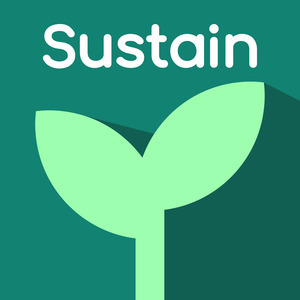Episode 269
Marianne Bellotti & Greg Wilson on 10 quick tips for making your software outlive your job
May 16th, 2025
44 mins 16 secs
About this Episode
Guests
Marianne Bellotti | Greg Wilson
Panelist
Richard Littauer
Show Notes
In this episode of Sustain, host Richard Littauer talks with Marianne Bellotti, author of *Kill It with Fire, *and Greg Wilson, co-founder of the Carpentries, about what happens to your code when you leave your job and how to make sure it survives. They discuss their new paper, "10 quick tips for making your software outlive your job," and share practical strategies for protecting, documenting, and sustaining code in open source, research, and civil service environments. Whether you're preparing for a job change or want to future-proof your work, this conversation offers real-world advice for developers and researchers alike. Hit the download button now!
[00:03:04] Greg and Marianne talk about challenges in code sustainability.
[00:05:46] Greg speaks about how scientists often prototype rather than build production quality code.
[00:09:48] We start with Step 1 in the paper: “Consider your threat mode.” Greg explains the different plans needed for individual vs. systematic departures, Marianne speaks about the importance of understanding code lifecycle-some code has a “fruit fly” lifespan others a “tortoise” one, and Richard adds to think about reframe threat modeling around future usefulness.
[00:15:53] There’s a discussion on Step 2: “Get sign-off on releasing it publicly.”
[00:21:30] Greg discusses Step 3: “Choose an open license” and emphasizes to stick to well-known licenses (MIT, BSD), don’t write your own, and he shares a funny story.
[00:25:29] Richard talks about Step 4: “Put your code somewhere safe” and shares to upload code to GitHub, Codeberg, OSF, Zenodo, etc. Greg suggest peer-to-peer methods like torrents could help long-term preservation and Marianne emphasizes the importance of verified identities when sharing.
[00:29:21] Marianne introduces Step 5: “Document your code.” Greg shares that most documentation goes unread and LLMs could help mine useful documentation from conversation records and Marianne emphasizes to focus on “how to run it” first and tests are a part of your documentation.
[00:35:17] Step 6: “Make your code reproducible.” Greg and Marianne discuss using tools like Docker, uv for Python lockfiles, etc., for dependency management.
[00:36:23] Step 7: “Make your code citable” and Step 8: “Encourage community adoption.” Richard mentions to add a CITATION.cff file so others can cite your code and Greg mentions a great book he read that changed the way he viewed this called, Marketing for Scientists, by Marc Kuchner.
[00:38:49] Step 9: “Write a succession or sunsetting plan.” Marianne shares to define success and failure criteria for projects explicitly.
[00:40:36] Step 10: “Talk about what you’re doing.” Greg emphasizes to celebrate and grieve project endings properly and Richard encourages listeners to check out the paper, read it, and if you see something missing you can contribute back.
[00:43:12] Fnal thoughts from Greg and Marianne: Organize collectively to protect science and code sustainability and find your team.
Quotes
[00:12:10] “Weapons begin as toys.”
[00:14:09] “All code is throwaway code.”
[00:27:34] “Sooner or later every library burns.”
[00:29:44] “Most documentation is never read by anybody because it’s not answering the questions that you actually have.”
[00:41:05] “Take some time to celebrate and to grieve.”
Links
- SustainOSS
- podcast@sustainoss.org
- richard@sustainoss.org
- SustainOSS Discourse
- SustainOSS Mastodon
- SustainOSS Bluesky
- SustainOSS LinkedIn
- Open Collective-SustainOSS (Contribute)
- Richard Littauer Socials
- Marianne Bellotti (Medium)
- Marianne Bellotti LinkedIn
- Greg Wilson GitHub
- Greg Wilson LinkedIn
- “10 Quick tips for making your code last beyond your current job” (draft)
- Kill It With Fire by Marianne Bellotti
- Marketing for Scientists: How to Shine in Tough Times by Marc J. Kuchner
- Codeberg
- Zenodo
- OSF
Credits
Produced by Richard Littauer
Edited by Paul M. Bahr at Peachtree Sound
Show notes by DeAnn Bahr Peachtree Sound
